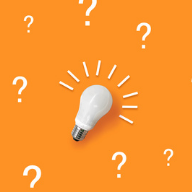How innovation failure creates success

Learning & Development
241 week ago — 5 min read
As you pursue your own next big thing in 2020, my wish is that you will be ready to fail in pursuit of your innovation vision.
That’s right: be ready to fail. And then accept and learn from your failures.
The last few weeks of 2019 were a time to reflect upon the past year’s accomplishments, disappointments, and discoveries. With the clock striking midnight on December 31, we instantly began to create 2020 – with all of its aspirations, goals, opportunities, market demands, risks and pressures.
In the corporate world, the year barely gets started when leaders are identifying and documenting risks to their plans, and then figuring out how to avoid, cover for, or mitigate those risks. However useful the exercise, these and other corporate norms feed employee anxiety about being tagged with failures. They discourage the experimentation that brings about the failures that spawn discoveries.
Startups are committed to the ethos of “fail fast, fail cheap” but when they are not built with the culture, leadership, process and skill to turn failure into learning they will fail their way to complete failure. Most startups, after all, do.
No matter where you sit in terms of company size, sector or life stage there’s probably room to improve your approach to failure. That’s why, rather than adding to your inbox yet another year-end “top 10” list, I’ve decided to help jumpstart 2020 by encouraging you to get better at failing in a way that creates more success.
I was motivated by reading Failure Found to be an “Essential Prerequisite” for Success in a recent issue of Scientific American magazine. The article describes an extensive Northwestern University study about failure. Based on research and analysis of three very large and very different data sets — over 776,721 NIH grant applicants, 46 years of VC-funded startups, and an unconventional dataset – 177,350 terrorist attackers carried out over a 40 year period. The study presents quantified findings of failure based on analyses of these populations. It isolates the factors that differentiate what some people do that allows them to harness failure for success while others simply fail. Interestingly, the findings:
- Overturn the commonly held view that persistence and luck are primary drivers of success. In fact, the study found no difference in work effort or persistence between those who succeeded versus those who failed.
- Reinforces the connection between success and the ability to continue to learn from each prior failure to that the next attempt comes closer to success.
- Reports fresh, empirical findings that the other key factor alongside applying the learning from the past failure is the amount of time that elapses between each attempt.
Can you point to moments when you looked at the potential for failure and instead of devoting energy to an avoidance strategy, anticipated how to learn from it? How do you feel and react in the face of failure?
Here are some recommendations on how to make failure fuel for success:
- Accept, deep down, that failure is not only inevitable, but it’s also good for you. I know that it’s easy to espouse the value of failure but very hard to walk the talk. This year take the walk. The points in my own career where I failed or was even just viewed as having failed, led to the pivots that delivered the most joy, success, and reward from the new opportunities that arose as a result.
- Mine each failure for learning and insight to apply to your next revision, prototype, iteration, experiment, development sprint, pitch deck, decision, or mentoring session.
- Move quickly and with a sense of urgency to that next step to reflect what you have learned from your prior failures.
Keep in mind that even if not by design, you are a role model for your team, partners, colleagues, board, investors or friends who will all pick up on the signals you give off about your latest failure. Besides what it will do for you, if you are able to overcome avoiding, burying, denying or rationalizing failure, you will help those around you, and improve their confidence in and willingness to support your vision.
Find your successes by embracing the failures.
Also read: We are all innovators … so now what?
To explore business opportunities, link with me by clicking on the 'Connect' button on my eBiz Card.
Disclaimer: The views and opinions expressed in this article are those of the author and do not necessarily reflect the views, official policy or position of GlobalLinker.
Other articles written by Amy Radin
11 Resolutions for Women Entrepreneurs
56 week ago
8 Tactics to Make Questioning a Superpower
63 week ago
Most read this week
Trending
Ecommerce 5 days ago













Comments
Share this content
Please login or Register to join the discussion